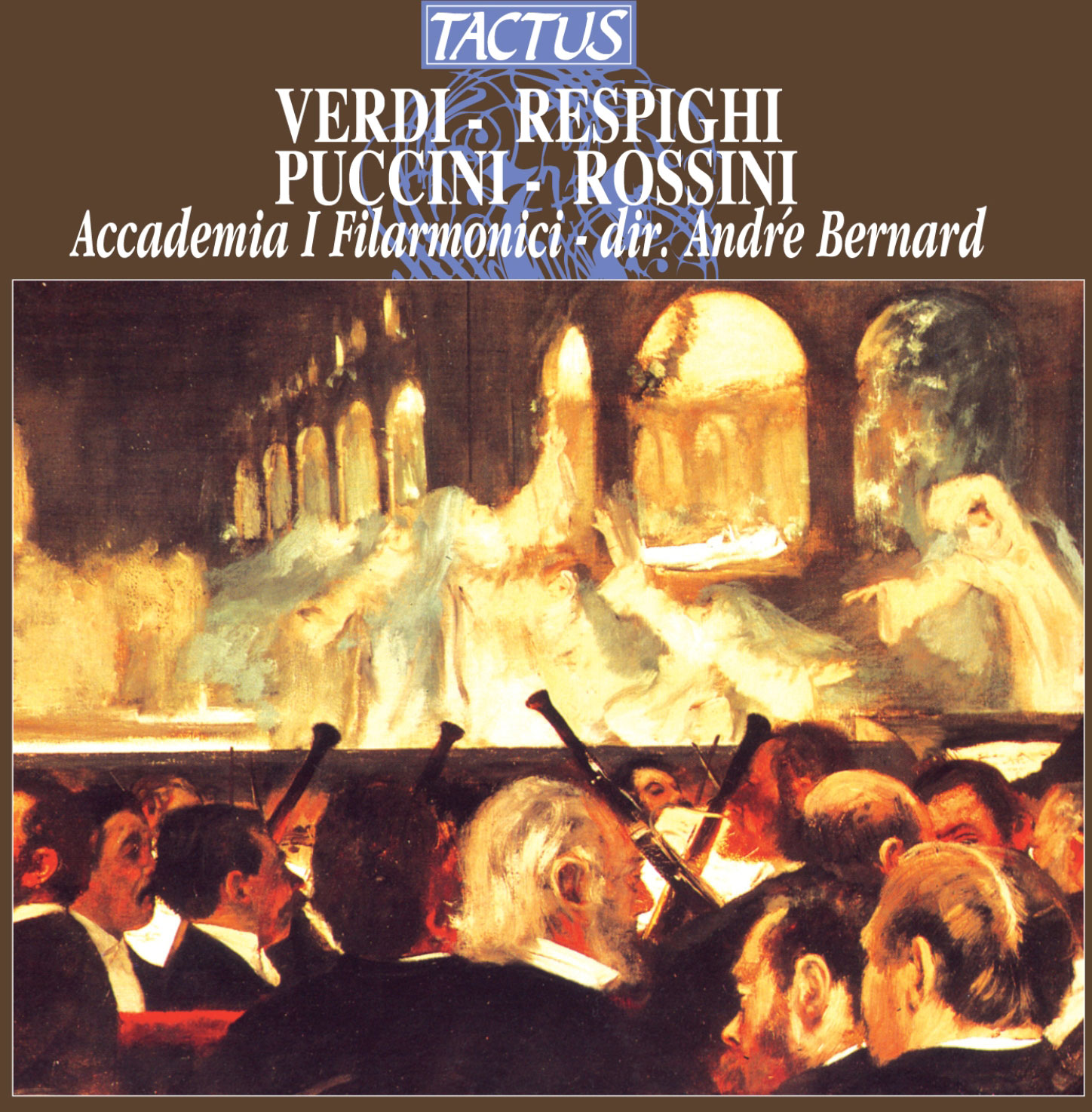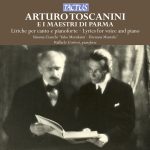VERDI, RESPIGHI, PUCCINI, ROSSINI
Bourgeois Europe of the 19th century is experiencing the upheavals of its operatic heroes, as with events in the sacred realm, in an era marked by the decline of the Catholic religion.
All passions take refuge in the new churches which a social class has built by itself.
Aside from factories and museums, opera houses were the only testimonies of civic architecture which cities took advantage of.
In Italy, as elsewhere, the taste for building for oneself prevailed over that of building for the general citizenry.
But in Italy, more than elsewhere, everything was governed by opera.
Evidently, no one is unaware of the fact that the fortunes of Gioacchino Rossini (1792-1868), Giuseppe Verdi (1813-1901) or Giacomo Puccini (1858-1925), were decisively better from a theatrical point of view.
In representing three eras of Italian opera, they illustrate three ways of approaching instrumental composition so as to avoid the total disappearance of pure music.
Tracklist
Verdi, Giuseppe
String Quartet in E Minor (arr. for orchestra)
1 - I. Allegro (8:07)
2 - II. Andantissimo (9:27)
3 - III. Prestissimo (3:10)
4 - IV. Scherzo fuga (4:32)
Respighi, Ottorino
Ancient Airs & Dances, Suite No. 3, P. 172
5 - I. Italiana (2:50)
6 - II. Arie di Corte (7:50)
7 - III. Siciliana (3:03)
8 - IV. Passacaglia (3:54)
Puccini, Giacomo
Crisantemi
9 - Crisantemi (6:35)
Rossini, Gioachino
Sonata No. 1 for Strings in G Major
10 - I. Moderato (7:49)
11 - II. Andantino (4:09)
12 - III. Allegro (2:15)
- Composer: VERDI, RESPIGHI, PUCCINI, ROSSINI
- Performers: Primo violino Alberto Martini
- Historical Period: Romanticism
- Code: TC 812203
- Edition: July 2005
- Barcode: 8007194103090
- Set: 1
- Total tracks: 12
- Total duration: 01:03:56






